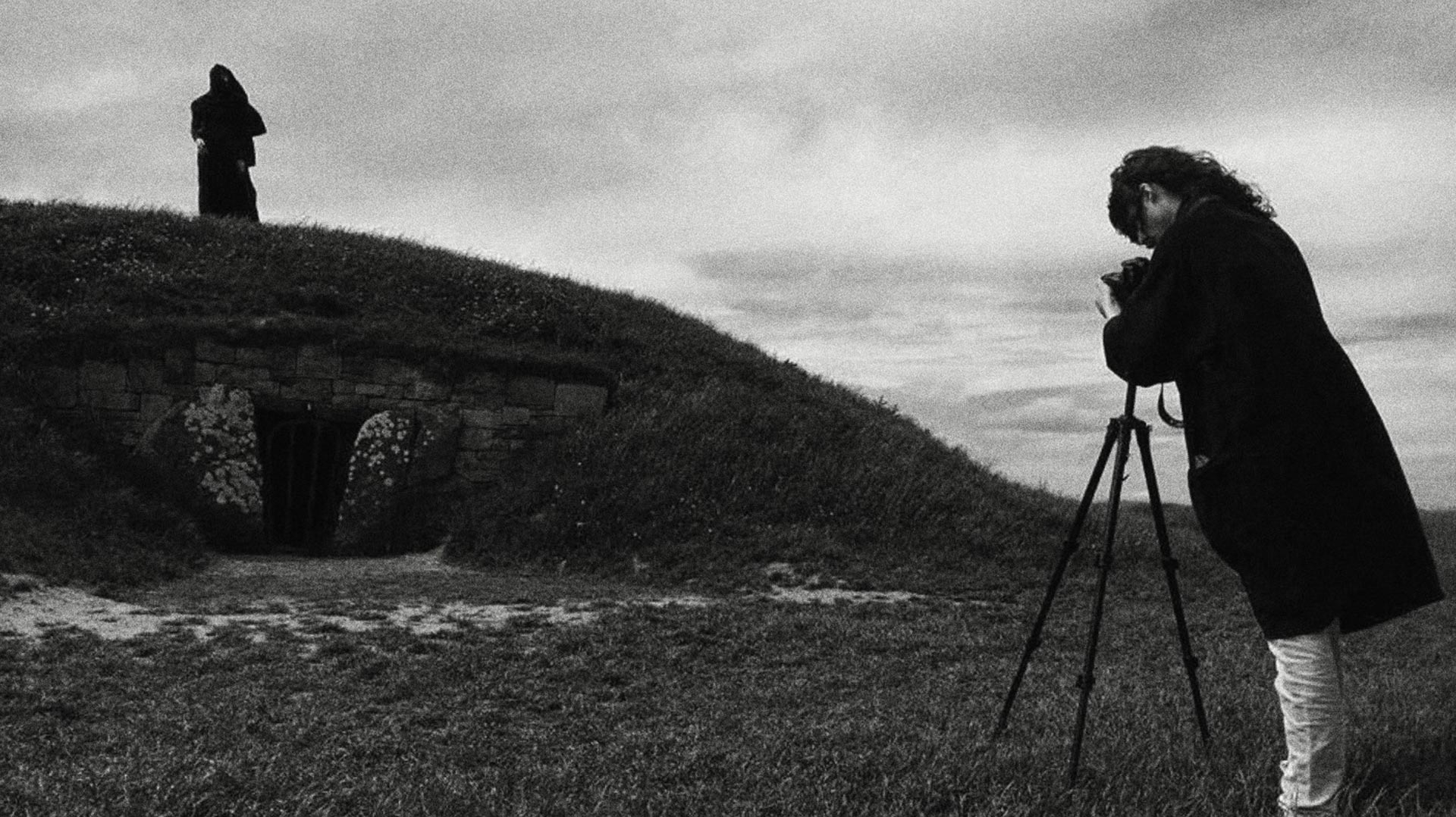INAUGURATION:
Sabato 22 agosto
Ore 18:00
OPENING HOURS:
Monday, Wednesday, Thursday from 6:00 p.m. to 8:00 p.m.
Friday, Saturday, Sunday from 6:00 p.m. to 9:00 p.m.
Tuesday from 6:00 p.m. to 9:00 p.m. – poetic reading by Giorgiomaria Cornelio and Lucamatteo Rossi
TRILOGIA DEI VIANDANTI
Giorgiomaria Cornelio
Lucamatteo Rossi
We have held a fluvial pose for five years, during which the people we have encountered have astonished us and led us towards an overflowing cinema. A humble cinema, even though it can suddenly flick like when the frame is called upon to awaken a film asleep in the stone or to order a second birth of the image through the same initiatory gesture. A vertebral cinema, then a regiment of bones, and then a delicate crack in the entire skeleton. A cinema that asserts the androgynous character of vision, that is always in the middle of each relation, connecting, disjoining, editing, overlaying, and getting alarmed when it perceivesthe flashing of the things. The latter turns our interiority into the place where all the exteriority of the world reshuffles. These are the titlesin chronological order: Every Bush a God that Burns (2016), Like the Grave of a Stone, Like the Cradle of a Star (2018), Ubi Amor Ibi Oculus (2020).
These are the wanderers — like the threefold expression of the same figure: the Pilgrim, the Wizard, and the Blind Man. These are the places: Italy and Ireland, or better the incessant movement that leadsfrom one land to the other, always“walking in the image,” asreads psalm 38 (Verutamamen in imagine pertransit homo). This is the outcome: the moment when the light fades coincides with the most shining luminosity of its noon. We present here — thanksto the long-sightedness of Satellite and of the curator, Mauro Santini—an atlasthat, even if limited, does not renounce to be an intransigent drainage of life which acts inside matter.
For us, cinema starts beyond the screen every time that it manages to chip the first immediacy of reality and to make the hidden visibility of what lays around catchable, even just for an instant. What is left is a sun buried under the eyelids “which holds brightly the prehistory of the stars.” The fact that the cinema is an invention without a future does not prevent the future of imagination from manifesting itself through it. This is why we persevere in wandering.
Another story may be the following one: not the story about the aged mirrors, but the story about cinema before its invention. Whenwhole provinces of the eye started to drove away one another among the theatres, Tobi’s son was sent away to find the way back beyond his sight. In the same way, when the officiantsforgot how to worship the trees, the roots began to fight against the branches. Only afterwards, the prior events started to converge again. You see, we are just at the beginning. The world must be made again like the etymology of hunger did. The leaf of grasswill be fastened asfirst clue in the typography of the genesis. In the end, the vowels will come, and the yew tree will bestow the virtue. From Like the Grave of a Stone, Like the Cradle of a Star.
Contributi video/video excerpts: Steven Woloshen, Andrew Kotting, Erik Bullot, Helga Fanderl, Guillaume Vallee, Maurizio Marras, Sara Scipioni, Ignacio Tamarit, Stephen Broomer, Valentina Lauducci, Samira Guadagnuolo, Morgan Menegazzo / Mariachiara Pernisa, Giuseppe Spina. Con materiali di/materials by: Magdalo Mussio, Frediano Brandetti, Giuditta Chiaraluce, Vincenzo Consalvi, Stefano Scodanibbio, Rubina Giorgi, Emilio Villa, Corrado Costa, Franco Ferrara.

